Finding the path to recovery is not always easy. Even once you are on the path, stumbling blocks such as doubt and fear can get in the way of reaching your goals. For this reason, many people who successfully reach recovery did not take the road completely solo. In fact, many people who struggle with mental health disorders or addiction have people that offer guidance, reassurance and support along the way.
A recovery coach (also referred to as a sober coach or addiction life coach) may provide just the support an individual needs when working to overcome obstacles and achieve a major life change. What is a sober coach? Similar to a life coach, a sober or recovery coach serves as a personal mentor for individuals struggling with either substance use or mental health disorder. This professional coach partners with an individual in recovery from start to finish.
Struggles People Often Face on the Road to Recovery
Whether an individual is struggling with substance abuse or a certain mental health disorder, there can be many struggles along the recovery journey. Challenges can be especially precarious to navigate at certain points in the journey, such as at the beginning of treatment or when returning home after inpatient programs are complete.
A few examples of challenges people tend to face when struggling with addiction or mental health disorders include:
- Fear about making needed changes
- Professional or career-related challenges
- Financial concerns or challenges
- Avoiding personal potential relapse triggers
- Feelings of guilt or shame associated with past behaviors or needing to seek treatment
- Co-dependency on other people or an inability to feel independent
- Dysfunction in familial relationships
- Apprehension about finding the right treatment options
- Challenges stemming from living with addiction or a mental health disorder, such as disorganization and high stress levels
Unfortunately, these struggles can inhibit the recovery process for a lot of people. For example, an individual with a substance abuse issue may leave treatment early and go back to using. Likewise, someone with severe depression may avoid therapy sessions and impede therapeutic processes, which can only worsen the situation.
What Is a Recovery Coach, and What Does a Recovery Coach Do?
Recovery coaches do not diagnose or treat the individual, and don’t follow any specific recovery methods. By contrast, they help the individual find and stay on the right path. This level of support can be valuable in many aspects of life during a recovery journey. A few things a recovery coach may do include:
- Help you find the right type of treatment
- Connect you with therapists, counselors or resources
- Help you create and work toward your goals
- Work with you to make healthy lifestyle changes
- Offer support in the face of triggers or stumbling emotional barriers
- Provide information to help with personal or family relationships
- Give advice about avoiding relapse triggers
- Discuss program alternatives if something is not working
- Offer guidance regarding key life decisions
Consider what a coach does in sports. This individual creates plans and plays to achieve a win, but more importantly, the coach delivers the perfect combination of support, encouragement and tough love to the players. They work hard to bring out the potential and strengths in every player. Similarly, a recovery coach acts as a guiding beacon on the road to recovery. The professional helps the individual build a personalized treatment plan, offers support along the way and helps steer the individual back in the right direction if he or she begins to veer off course.
Recovery Coach vs. Sponsor — What’s the Difference?
A recovery coach should not be confused with a sponsor, even though both can serve poignant roles on the journey to recovery. Different treatment programs often encourage individuals to find a sponsor while in treatment. This individual is someone who volunteers to support others during recovery, likely because he or she achieved sobriety or recovery. For example, an Alcoholics Anonymous sponsor may be an individual who has successfully committed to living a sober life and wants to support someone else who is working through the program.
A recovery coach is often a certified professional that has undergone extensive training. This individual may offer similar levels of support as a mentor, but the support reaches far deeper and is often valuable throughout the recovery journey.
Find the Support You Need at Vanguard Behavioral Health
At Vanguard, we understand that every individual has a different journey to walk to reach recovery. Our coaching team is here to provide personalized support that empowers individuals struggling with addiction or mental health to reach their goals.
If you or a loved one is struggling to find the right treatment program, we offer dual diagnosis treatment, substance abuse treatment and mental health treatment in Tucson, AZ, and Albuquerque, NM. Begin your journey with personalized support from Vanguard today by reaching out for more information.








